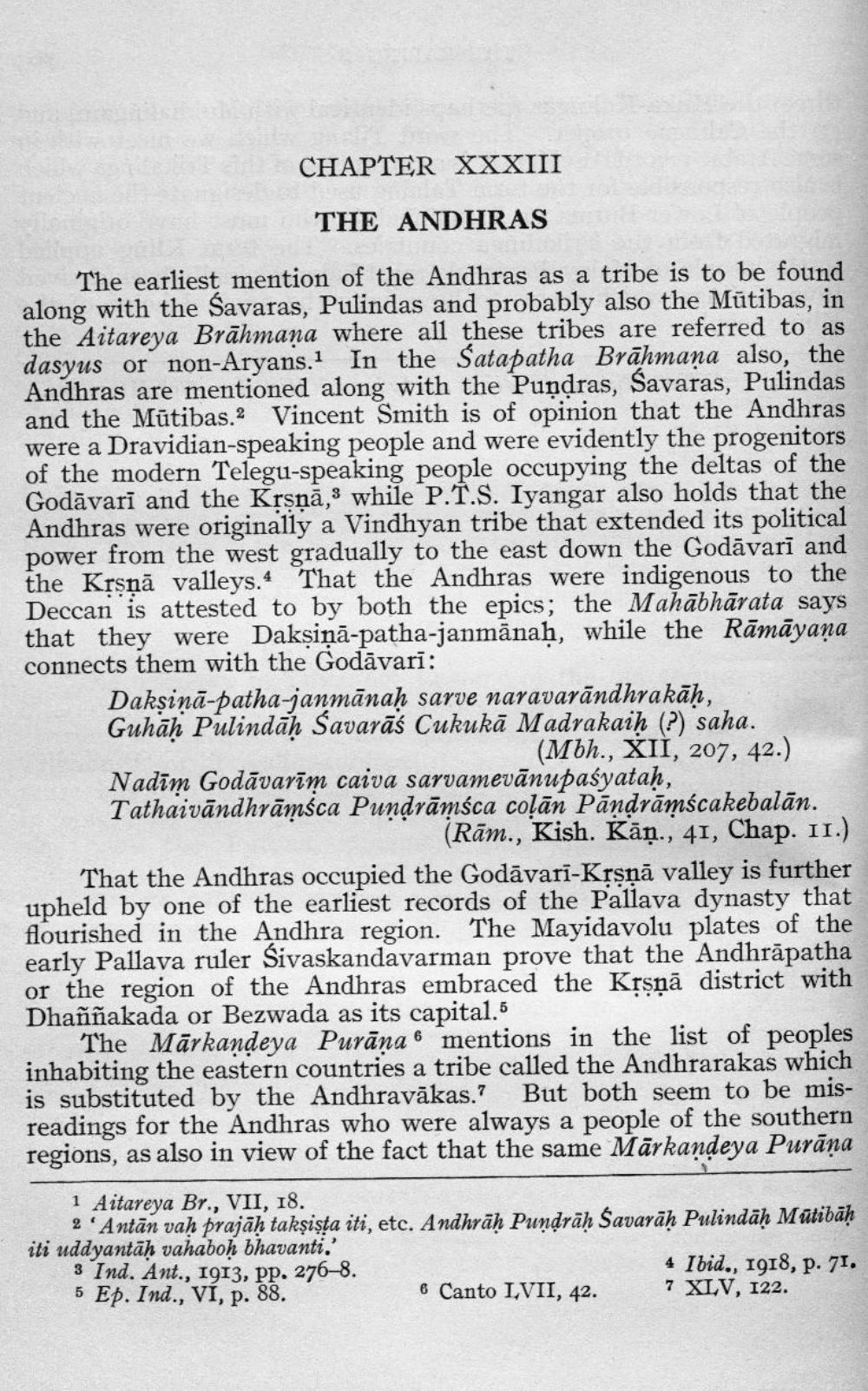________________
CHAPTER XXXIII
THE ANDHRAS
The earliest mention of the Andhras as a tribe is to be found along with the Savaras, Pulindas and probably also the Mūtibas, in the Aitareya Brāhmana where all these tribes are referred to as dasyus or non-Aryans. In the satapatha Brāhmaṇa also, the Andhras are mentioned along with the Pundras, Savaras, Pulindas and the Mūtibas.2 Vincent Smith is of opinion that the Andhras were a Dravidian-speaking people and were evidently the progenitors of the modern Telegu-speaking people occupying the deltas of the Godāvarī and the Krsņā,8 while P.T.S. Iyangar also holds that the Andhras were originally a Vindhyan tribe that extended its political power from the west gradually to the east down the Godāvarī and the Krsņā valleys.4 That the Andhras were indigenous to the Deccan is attested to by both the epics; the Mahābhārata says that they were Dakşiņā-patha-janmānaḥ, while the Rāmāyana connects them with the Godāvarī:
Daksiņā-patha-janmānaḥ sarve naravarāndhrakāḥ, Guhāḥ Pulindāḥ śavarāś Cukukā Madrakaih (?) saha.
(Mbh., XII, 207, 42.) Nadīm Godāvarīm caiva sarvamevānupaśyataḥ, Tathaivāndhrāmśca Pundrāmśca coļān Pandrāmscakebalān.
(Rām., Kish. Kāņ., 41, Chap. 11.) That the Andhras occupied the Godāvarī-Krsņā valley is further upheld by one of the earliest records of the Pallava dynasty that flourished in the Andhra region. The Mayidavolu plates of the early Pallava ruler Sivaskandavarman prove that the Andhrāpatha or the region of the Andhras embraced the Krsņā district with Dhaññakada or Bezwada as its capital.5
The Mārkandeya Purāna 6 mentions in the list of peoples inhabiting the eastern countries a tribe called the Andhrarakas which is substituted by the Andhravākas.? But both seem to be misreadings for the Andhras who were always a people of the southern regions, as also in view of the fact that the same Mārkandeya Purāna
1 Aitareya Br., VII, 18.
2 'Antān vaḥ prajāḥ taksista iti, etc. Andhrāḥ Pundrāh Savarāḥ Pulindāḥ Mūtibāḥ iti uddyantāḥ vahaboh bhavanti.' 3 Ind. Ant., 1913, pp. 276–8.
4 Ibid., 1918, p. 71. 5 Ep. Ind., VÍ, p. 88.
& Canto LVII, 42. 7 XLV, 122.




